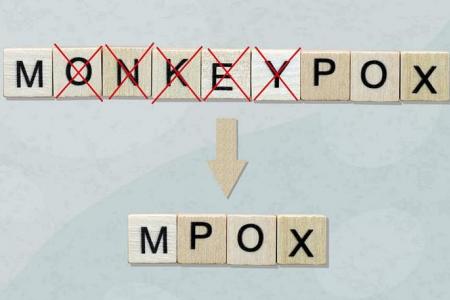Monkeypox now called mpox, in line with WHO guidelines
Monkeypox will now be called mpox, in line with World Health Organisation (WHO) guidelines that aim to avoid the stigma linked with the original name.
Health Minister Ong Ye Kung, in a Facebook post on Monday, said the name change comes after the WHO reported instances of stigmatising language being used during the mpox outbreak around the middle of 2022.
Mr Ong said: “Aligned with WHO’s recommendation, we have made amendments in the relevant legislative acts under the Ministry of Health (MOH).
“Mpox will also be used in MOH’s communications to the healthcare sector and the general public moving forward.”
On Nov 28, 2022, WHO said it will phase out the use of monkeypox over one year in response to a number of people and countries raising concerns. They had also asked WHO to suggest changes to the disease’s name.
The decision to use mpox was made after consultations with representatives from the government authorities of 45 different countries, among others.
The new name had to take into consideration things like the rationale, scientific appropriateness, extent of current usage, pronounceability, usability in different languages, absence of geographical or zoological references, and the ease of retrieval of historical scientific information, WHO said.
In his Facebook post, Mr Ong said: “The good news is that the global mpox situation has stabilised considerably. In Singapore, we are also seeing fewer cases than before, with two in the last four months.”
Human monkeypox was given the name in 1970 after the virus that causes the disease was found in captive monkeys, said WHO in a statement in 2022.
Assigning new names to existing diseases is an exceptional step. It is usually done with the aim of minimising the unnecessary negative impact it can have on names in the trade, travel, tourism or animal welfare sectors.
It also aims to avoid causing offence to any cultural, social, national, regional, professional or ethnic groups, WHO said.
Under guidelines issued in 2015, WHO advises against using place names like Ebola and Zika – where those diseases were first detected, and are now somehow intertwined by association.
More general names, like the Middle East Respiratory Syndrome or Mers, are also now avoided to prevent entire regions or ethnic groups from being stigmatised, as is Spanish flu.
The first case of mpox in Singapore was confirmed in May 2019.
Get The New Paper on your phone with the free TNP app. Download from the Apple App Store or Google Play Store now


